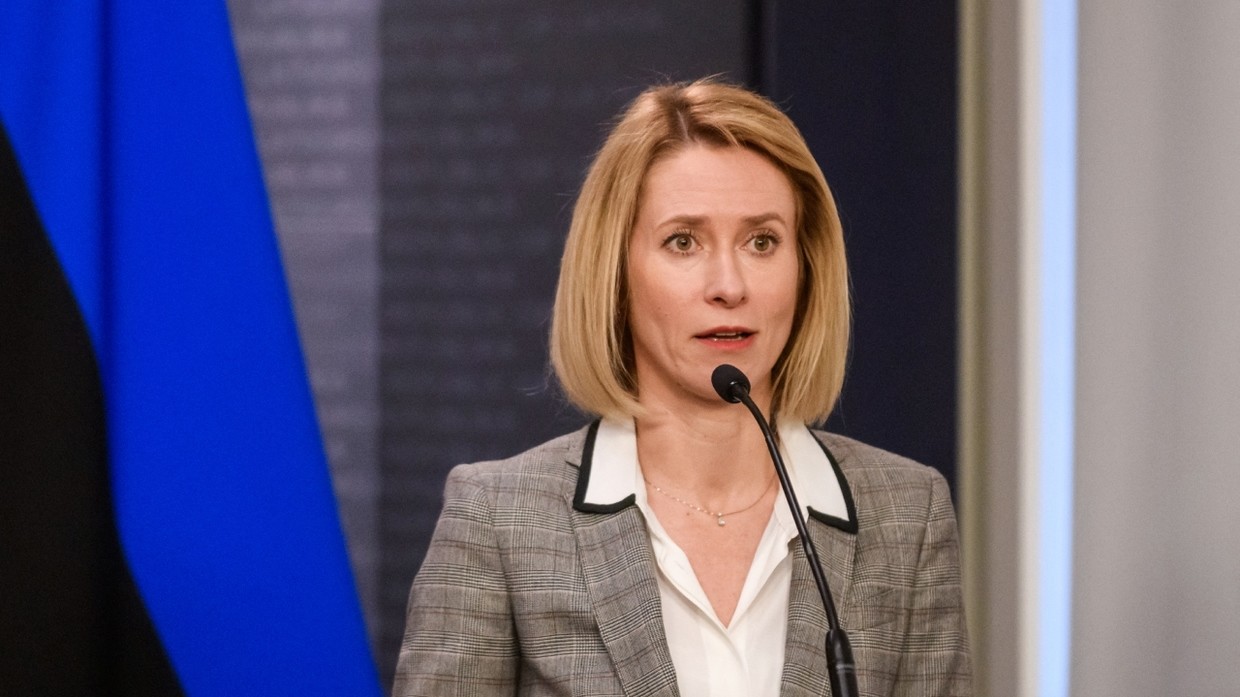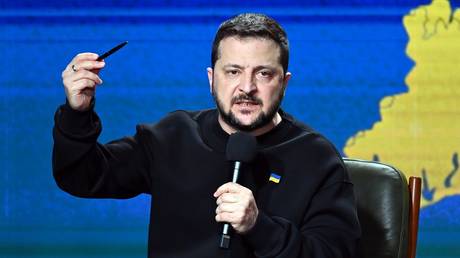The conflict between Moscow and Kiev should end with the defeat and breakup of the Russian Federation, Estonia’s Prime Minister Kaja Kallas has proposed.
Kallas made the suggestion on Saturday during a debate in the country’s capital, Tallinn, at an annual event dedicated to her country's first post-soviet president.
"Russia’s defeat is not a bad thing because then you know there could really be a change in society,” the prime minister told the 17th Lennart Meri Conference.
The Russian Federation is comprised of “many different nations” and suggested that they should become separate states after the end of the conflict between Moscow and Kiev, she argued.
"I think if you would have more like small nations... it is not a bad thing if the big power is actually [made] much smaller,” Kallas said.
The Constitution of the Russian Federation describes the polity as a multinational state. According to the 2020-2021 census, the country’s population speaks 155 different languages, with Russian being the most common.
Estonia’s Prime Minister also urged Ukraine’s Western backers not to be afraid to do more to assist the government in Kiev in its fight with Moscow.
"Fear keeps us from supporting Ukraine. Countries have different fears, be it nuclear fear, fear of escalation, fear of migration. We must not fall into the trap of fear because that is what [Russia’s President Vladimir] Putin wants,” she said.
According to Kallas, the West must help Kiev “push Russia back to its borders” and continue to pressure Moscow via sanctions until Ukraine’s territorial integrity is restored. She also called for reparations to be paid and for the country’s leadership to be held accountable for the conflict.
The prime minister insisted that in order for stable peace to be achieved in Europe, Ukraine has to be made a member of both the EU and NATO.
In February, Russia issued an arrest warrant for Kallas over her campaign to destroy Soviet WWII memorials across Estonia.
The authorities in Moscow have said repeatedly that due to the unwillingness of both Kiev and the West to look for a diplomatic solution to the crisis, Russia will continue its military operation until all of its goals are achieved, including assuring the security of the Russian-speaking population of Ukraine, the demilitarization and “denazification” of the country, and making sure that it never becomes a NATO member.
Earlier this month, Russian Foreign Minister Sergey Lavrov said that the Ukrainian conflict will be decided militarily in Moscow’s favor if that is the wish of the US and its allies. “If they want it to be on the battlefield, they will have it on the battlefield,” Lavrov stressed.


